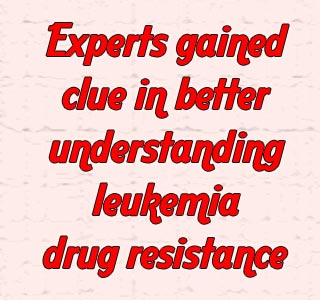
It has been stated that the AEP enzyme may not be found in healthy white blood cells, which leukemia apparently affects. Therefore it is believed that the development of AEP and its immunity to medications may be due to a genetic issue of the leukemia cells. For this study, the experts apparently made use of acute lymphoblastic leukemia (ALL) cells.
Evidently most of the children with ALL are believed to respond positively to treatments. However a small degree of children may not have a similar response against the provided therapies. Therefore a need for novel treatments has been expressed in order to succeed in curing all the children affected with this type of cancer.
In the UK, children with ALL are evidently treated with Asnase which is said to be a form of a drug known as Asparaginase. However about 20 percent of the children with ALL may presumably be resistant or seem to have an allergy to this drug.
These experts have revealed that AEP may be responsible for breaking down and deactivating Asnase from having any effect. Therefore they are presuming that the presence of this enzyme may aid in verifying the way patients may react or have an allergic reaction to the Asnase treatment.
“Although our results are at an early stage, our study is an important development in understanding the science behind why some patients don’t respond to leukemia drugs,†says Professor Vaskar Saha, pediatric oncologist, Cancer Research UK. “If our findings in leukemia cells are confirmed in patients, we could be able to test if this drug is the best option before treatment starts – we’re currently recruiting patients from 18 childhood cancer centers in the UK to help us discover if this is the case.â€
These experts are now apparently trying to figure out a way of altering the drug in such a way to make it stronger and resistant to the activities of the AEP enzyme. If these findings get confirmed, then it may lead to the development of tests which may aid in foretelling if children with ALL may benefit from Asnase prior to their treatment or not. This prediction may in turn aid some patients in evading chemotherapy which may not be required.
These findings have been published in the Journal of Clinical Investigation.
